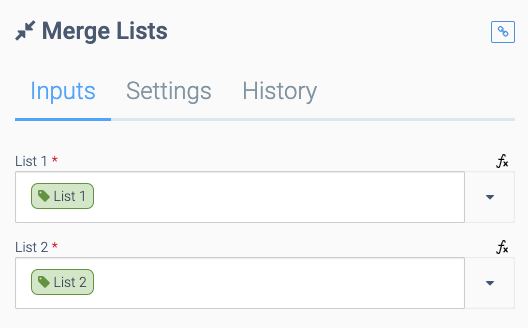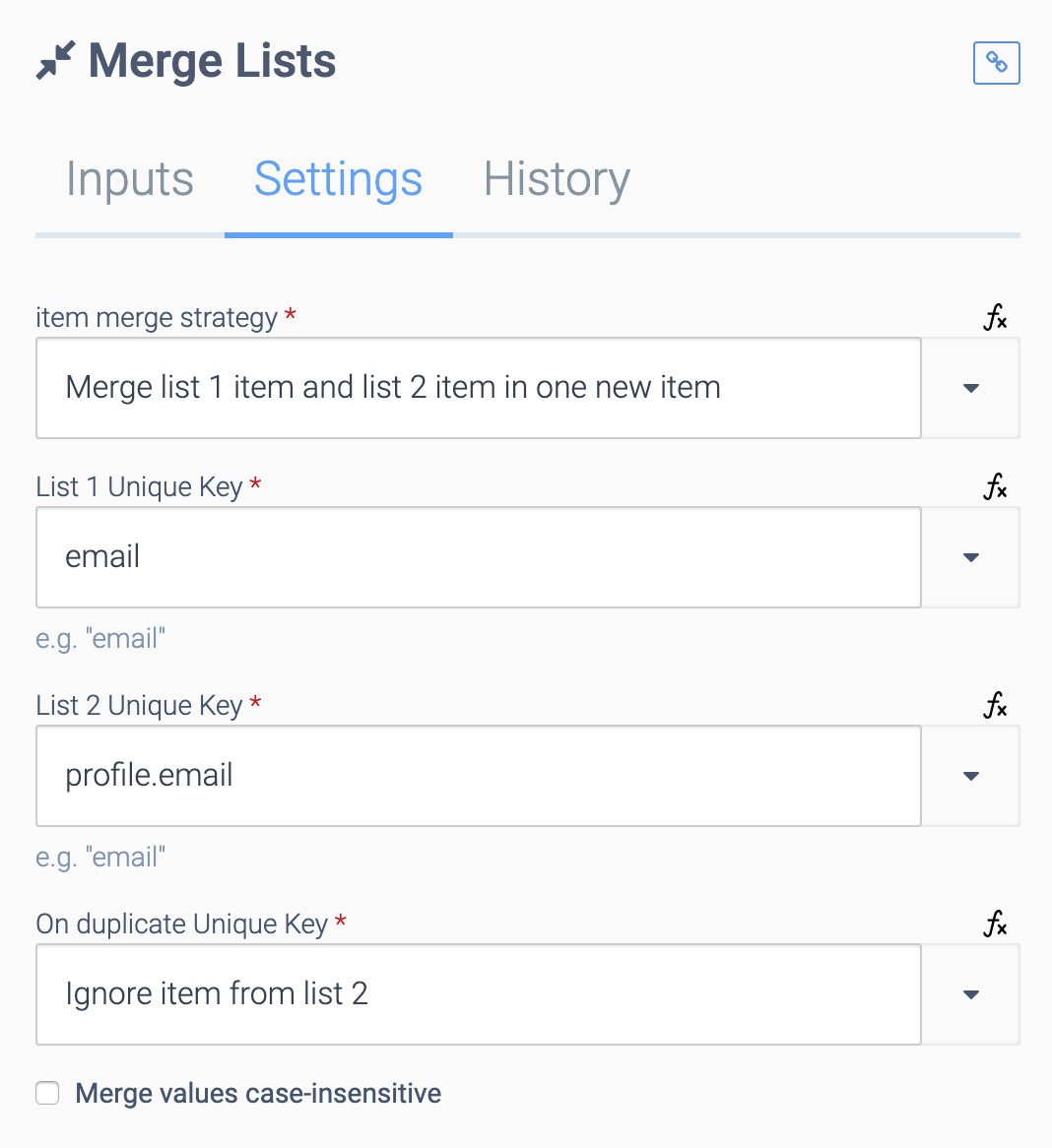Merge Lists block
The block Merge Lists
will merge two given lists (arrays) into one new list.
The Merge Lists block.

The block takes 2 lists as input:
Two List slots for input.

The items of both input lists will be added to the new output list. Items will be matched based on a given key. If the value is the same, both items will be merged into one new item.
Example list 1:
[
{"email": "john@doe.com", "name": "John Doe"},
{"email": "bill@acme.com", "name": "Bill Davis"}
]
Example list 2:
[
{"email": "john@doe.com", "city": "NY"},
{"email": "ann@acme.com", "city": "Paris"}
]
Example settings:
The Merge Lists block Settings tab.

Item merge strategy
Merge list 1 item and list 2 item in one new item All key/values from the object of both lists will be merged into one new object. For the above example lists, the first merged object will be:
{"email": "john@doe.com", "name": "John Doe", "city": "NY"}
Add list 2 items as children to list 1 items Use this for a parent/child relationship, e.g. customers (parent) and orders (children). All matching objects from list 2 will be added as an array under one key in the object from list 1.
Let's assume list 2 looks like this:
[
{"id": 1, "price": 100, "email": "john@doe.com"},
{"id": 2, "price": 200, "email": "john@doe.com"}
]
The resulting first object in the merged list will be:
{
"email": "john@doe.com",
"name": "John Doe",
"orders": [ {"id": 1, "price": 100}, {"id": 2, "price": 200} ]
}
Unique key
Choose a key from the objects in each list to compare values. For example, email
in one list and profile.email
in the second. Objects will be matched/merged based on the values from these keys.
On duplicate unique key
Ignore item from list 2 The object of list 2 will be ignored, when it matches an object of list 1. For the above example lists, the result will be:
[
{"email": "john@doe.com", "name": "John Doe"},
{"email": "bill@acme.com", "name": "Bill Davis"},
{"email": "ann@acme.com", "city": "Paris"}
]
Merge item from list 2 into item from list 1 The object of list 2 will be merged with the object from list 1. For the above example lists, the result will be:
[
{"email": "john@doe.com", "name": "John Doe", "city": "NY"},
{"email": "bill@acme.com", "name": "Bill Davis"},
{"email": "ann@acme.com", "city": "Paris"}
]
Merge values case-insensitive
If checked, the values will be compared case-insensitive
Iterator
This block does not use an iterator, which means that both input lists will be loaded in memory before doing the merge. This means that an automation using this block will fail with an out of memory
error for very large lists.
Did this page help you?
If you find any issues with this page or its content – a typo, a missing step, or a technical error – let us know how we can improve!
